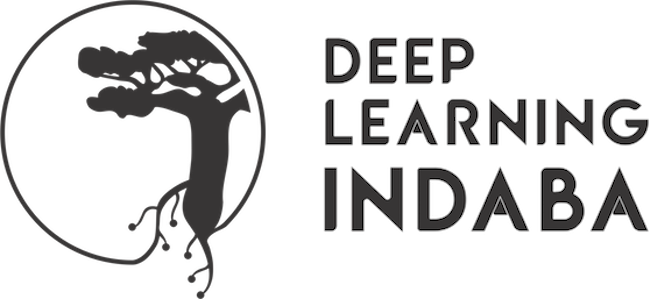6th September, 2024
Dakar, Senegal
The GeoAI for a Sustainable Future in Africa workshop was organised by the GeoAI-Africa community in a collaborative spirit among representatives from diverse organisations such as Microsoft AI for Good Lab, Google Research, and IBM Research. The workshop brought together students, experts, innovators, and enthusiasts to explore the transformative potential of geospatial AI in Africa. The event featured insightful presentations, engaging discussions, and a collaborative hackathon, all aimed at driving sustainable progress on the continent. In this blog post, we’ll share an overview of these activities.
Our Keynote speakers
The first keynote by Dr. Olubayo Adekanmbi, the Founder and CEO of Data Science Nigeria, shared practical applications of geospatial AI technologies across diverse sectors both in Nigeria and beyond. His talk emphasised the critical role of data science in addressing Africa’s unique challenges and opportunities, sparking a lively Q&A session that delved deeper into the practical applications of his insights. Our second keynote speaker, Zaheed Gaffoor, a research scientist at IBM Research Africa, shared the tremendous work his team has done to build Earth observation foundational models to tackle a wide variety of climate-related challenges.
Our Hackathon
A participatory hackathon titled “Indaba 2024: Vision-LLMs for Satellite Labeling in Africa” was a standout feature of the workshop (please note the hackathon will be made public at a later date). Participants collaborated on leveraging large language models for satellite data labeling. This initiative aims to address the shortage of labeled satellite data in Africa, which limits critical applications such as land use mapping, disaster impact assessment, and agricultural monitoring. By generating weak labels for satellite images, participants are helping to tackle these challenges by scaling the labeling process and reducing the costs of manual labeling.
Our panel discussion
The workshop culminated in a panel discussion on driving sustainable progress in Africa through geospatial AI capabilities. The panelists, moderated by Sekou Remy, included Dr. Olubayo Adekanmbi, Jackline Tum, Zaheed Gaffoor, Akram Zaytar, Aisha Alaagib, and William Ogallo. The panelists underlined the critical role geospatial AI technologies could play, particularly in mitigating the adverse impacts of climate change, tackling food security, and more broadly, achieving the Sustainable Development Goals (SDGs). They also stressed the importance of collaboration, innovation, and investment in building impactful GeoAI solutions at scale.
Conclusion
Overall, the workshop was a testament to the power of collective effort and innovation in harnessing geospatial AI for sustainable development in Africa. We look forward to building on the momentum generated and translating the insights gained into tangible impacts.
Next steps
The GeoAI-Africa community is thrilled to invite passionate individuals to join us in an exciting journey of collaboration, learning, and mentorship around transformative geospatial projects for Africa and the Global South! Whether you’re an innovator, a learner, or a mentor, a decision maker, there’s a place for you here. Don’t miss out on this incredible opportunity—fill out this form and start your adventure with us today!
For more information, you are welcome to contact the team via email: geoai-africa@googlegroups.com
Pictures
Caption: Group picture of the workshop attendees
Caption: Sabrina Amrouche giving the AI for Social Good book to Jackline Tum.
Caption: Gilles Quentin Hacheme presenting the GeoAI community.
Caption: Aisha Alaagib presenting the GeoAI community.
Caption: Gilles Quentin Hacheme introducing the GeoAI for a Sustainable Future in Africa workshop.
Caption: Dr. Olubayo Adekanmbi giving his keynote.
Caption: Akram Zaytar presenting the Hackathon.
Caption: Panel discussion. From left to right: Akram Zaytar, William Ogallo, Jackline Tum, Zaheed Gaffoor, Aisha Alaagib.
Caption: Gilles Quentin Hacheme offering the AI for Social Good book to Dr. Olubayo Adekanmbi.
Caption: Sabrina Amrouche giving the AI for Social Good book to Akram Zaytar.
